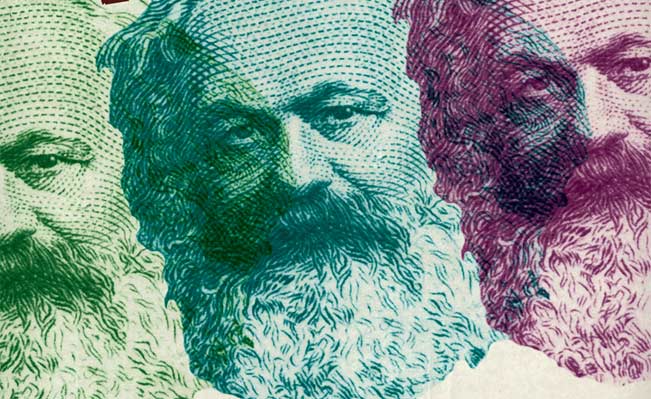 Marx for Today cover - a short accessible introduction to Marx's ideas available from Counterfire
Marx for Today cover - a short accessible introduction to Marx's ideas available from Counterfire
The Guardian May Day article misrepresents Marx and detracts from the critical lessons learned from his life and work argues Susan Newman
It was a welcome surprise to see the Guardian had chosen to publish an article on Marx this May Day. This soon turned into an unpleasant surprise, as the reader found, for one thing, little coverage of or reflection on what May Day is, and has been before. Second, and equally unforgivably, this single May Day article on Marx seriously misrepresents both his life and work, and is authored by someone who seems to have little knowledge of Karl Marx – the real person, that is.
The article, by writer Gavin McCrea, is simply littered with inaccuracies about Marx’s life and blatant misrepresentations of Marx’s ideas. It is quite astounding that this article was ‘passed’ by the Guardian editorial team.
Interpretations and debate of Marx’s work have long proliferated in the various traditions of Marxist scholarship and I won’t venture into such a discussion here, except to say that you would be hard-pressed to find anyone who has read any of Marx’s work and would agree with any of the content of McCrea’s article, save one line – “[o]ur minds have been disciplined and trained by the system in which we live, and it was Marx who gave us the means to think about this system”.
To claim that Marx was a capitalist, as does McCrea, shows a disregard for the very meaning attached to the class categories of capitalists and workers at the core of Marx’s analysis. Whilst it is true that Marx’s own origins were far from humble, this certainly does not make him a capitalist.
To claim that Marx “was less interested in imagining possible alternatives to capitalism than he was in examining and explaining capitalism itself” rejects the very motivation behind Marx’s analysis. Marx set himself the task of carefully studying the system in order to change it. His analysis was directed to the development of successful transformative (revolutionary) activity.
As for the notion that Marx “wasn’t a visionary (or if he was, he was a bad one)”, I’d simply recommend that Gavin McCrea read The Communist Manifesto (or read it again with due attention) – a work of vision, clarity and analytical beauty that can now be purchased from a Tesco’s near you, for 80p.
Were Marx really some kind of early champagne socialist, as McCrea alleges, this apparent hypocrisy would make no difference to the strength and validity of Marx’s analysis. Marx keenly recognises that the individual and the system are “co-constitutive”; we cannot simply isolate ourselves from the system.
Yes, Marx was born into a wealthy family, and in his youth he had access to the best education available, but he was in no way the “bourgeois, money-hungry, status-fixated” man that McCrea describes. During their time in Soho, the Marx family lived in poverty. Marx’s own income was tied to that of Engels, his collaborator and benefactor (who was a capitalist in Marx’s terms).
But Marx didn’t choose to live with meagre material wealth as a way of stripping himself from the ties of capitalism like a monk pairing down to approach enlightenment, as McCrea suggests he should have.
Changing an oppressive system needs more than self-reflection, kindness and compassion. It requires organisation, collective action and struggle. This is what Marx teaches us.

